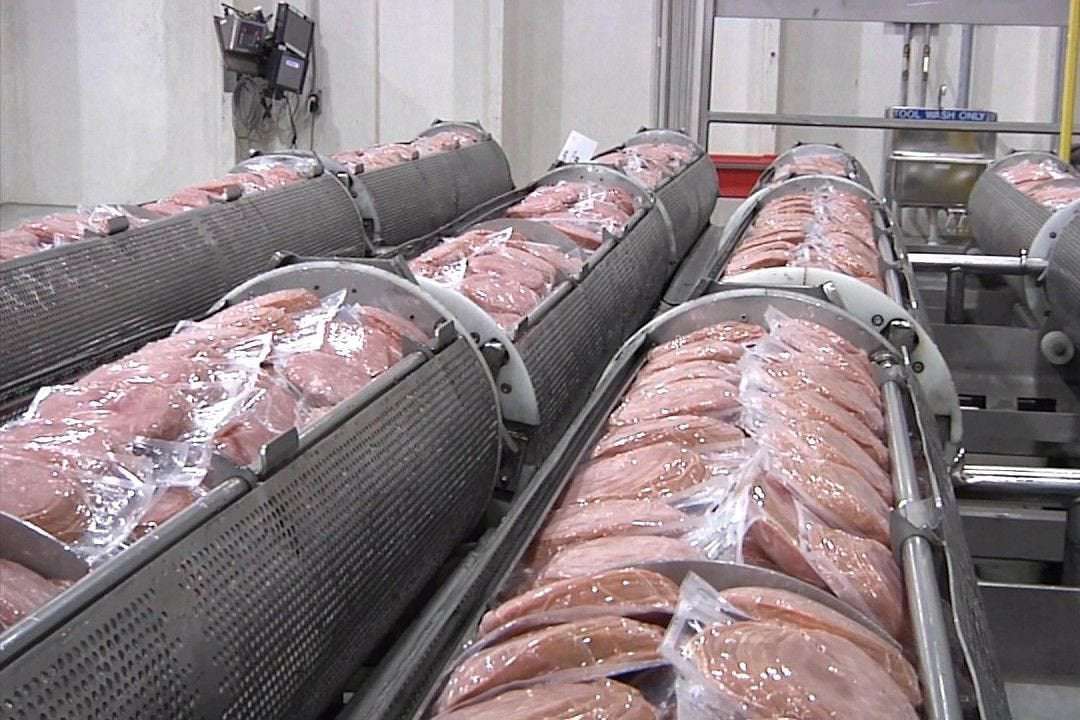Animal activists, vegetarians, vegans and even health experts have long touted the environmental and ethical issues with meat production and consumption.
Even studies have clarified how such practices could aggravate the climate change crisis.
The environmental impact of eating meat, beef in particular, is enormous.
A study which was published in May 2018 revealed that avoiding meat, as well as dairy products would be the best way to reduce the environmental impact on the plant.
The researchers documented that meat and dairy product provide 60 per cent of agriculture’s greenhouse gas emissions and only 18 per cent of the calories.
“For the United States, where per capita meat consumption is three times the global average, dietary change has the potential for a far greater effect on food’s different emissions, reducing them by 61 to 73 per cent,” added the study.
In terms of the production of industrial meat, which requires a huge amount of land to sustain itself, forests are deliberately destroyed which causes the release of billions of tonnes of carbon dioxide into the atmosphere that accelerates global warming.
Many times those trees are left to rot on the forest floor or burned that further causes emission.
Needless to say, healthy trees are important for absorbing carbon dioxide from the environment. If we cut them down for the purpose of meat production then they will no longer be able to help in terms of fighting against climate change.
Globally, animal agriculture is responsible for the release of more greenhouse gases compared to all the world’s transportation systems combined.
According to PETA.org, cows need to consume 16 pounds of vegetation to convert them into 1 pound of flesh.
“Raising animals for food consumes more than half of all water used in the US. It takes 2,500 gallons of water to produce a pound of meat but only 25 gallons to produce a pound of wheat,” said the website.
Even a pig factory generates almost the same amount of raw waste equivalent to a city of 12,000 people.
By 2050, the world population would reach 10 billion or maybe more than that.
This means that feeding this population with the current food system would be impossible.
Some experts believe that without affecting the environment if just 2 per cent of the world's oceans were sustainably farmed, there would be enough food to feed the whole world.
Vincent Doumeizel, who is a senior adviser on ocean-based solutions at the UN Global Compact and an evangelist for seaweed said: "We could provide enough protein to feed a world population of 12 billion people. Seaweed is extremely protein-rich, low in fat, low in carbohydrates and rich in vitamins, zinc and iron."
But there will be people who may not be willing to compromise with their taste buds.
So, some experts believe that cultured meat or lab-grown meat may be the future of the meat industry and could lead to a more sustainable, as well as environmentally friendly non-vegetarian society.
Cultured meat is created by harvesting muscle cells from a living cow — that doesn’t cause any pain or harm to the animal.
Experts feed and nurture the cells that multiply to create muscle tissue which is the main component of the meat.
It is biologically the same as the meat tissue which comes from a cow and resembles actual meat in terms of appearance, texture and nutrient profile.
The Microsoft co-founder, who is now co-chair of the Bill and Melinda Gates Foundation, Bill Gates has already invested in lab-grown meat companies.
A few years ago, he wrote in his blog: “Raising meat takes a great deal of land and water and has a substantial environmental impact”.
He explained that since all the non-vegetarian people cannot and will not suddenly embrace vegetarian food, the world needs more options that won't compromise with their usual food habit.
In an interview with MIT Technology Review, the billionaire philanthropist said: “I do think all rich countries should move to 100 per cent synthetic beef”.
In 2020, Singapore became the first country to allow the sale of cultured meat.
The Singapore Food Agency (SFA) granted San Francisco start-up Eat Just Inc regulatory approval to sell its laboratory-grown chicken in the city-state.
However, the Food and Agricultural Organization has predicted a worldwide shortage of protein-rich foods following the coronavirus pandemic.
Even according to the Cornell Alliance for Science, around the same time, almost one billion people in the world would suffer from protein deficiency.
To solve the protein problem, many countries could embrace the idea of having lab-grown beef and slow the effects of climate change.
But, some scientists argue that cultured meat may do more damage to the climate depending on how the energy to make the lab meat is produced.
However, the lead researcher of the 2018 study, Joseph Poore, an expert from the University of Oxford suggested that a vegan diet is probably the single way to reduce the impact on the planet, not just greenhouse gases, but global acidification, eutrophication, usage of land and water.
According to him, it is far bigger than cutting down on flights or buying electric cars — as these could only help to reduce the greenhouse gas emission.

pdgenoa on June 8th, 2021 at 14:04 UTC »
How is it possible so many people don't understand the massive difference between lab grown (cultured) meat and meat substitutes?
This is real meat - not 30% or 80%, but 100% real meat. Impossible burgers and the like, are substitutes for meat.
stinky_beans on June 8th, 2021 at 13:51 UTC »
Finally, I can eat human meat without judgement or jail time.
SeaSixSend on June 8th, 2021 at 13:42 UTC »
If you want to learn more about lab-grown meat, r/WheresTheBeef is the main subreddit about it. There are a lot of scientists there who are working on it too which is cool.